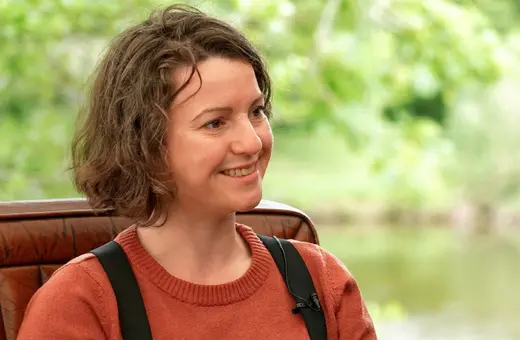Susan Sontag famously argued that we should see "illness as metaphor". But Finlay Darlington-Bell, the author of this article, who was diagnosed with epilepsy in July last year, argues we should see illness as story. To help him cope, he immersed himself in the history and folklore around the disease, which has been seen as both satanic and sacred throughout history. Darlington-Bell came to the following belief: narrativising your disease and your experience helps you to cope with it and ultimately survive it. This is not Sontag's 'illness as metaphor' but 'illness as story'.
In late July last year, on a Ryanair flight back from the Greek island of Kos, I had an experience that changed the course of my life forever. Impossibly tired and in a post-holiday stupor, I transferred from Kos to London Stansted, and then onto an internal flight from London to Cornwall. The take-off, with its predictable yet somewhat comforting safety demonstration, went smoothly, and I slowly drifted asleep.
In a sea of clouds, I awoke around twenty minutes later in a state of distress. With a pulsating headache, sweat pouring down my temples, and a pressing urge to go to the toilet to throw up, it wasn’t hard to tell that something was amiss. Before I could ask the couple next to me to vacate their seats so that I might make a desperate bid for the modest Ryanair loos, I saw a bright light appear before me. With my last thought, I wondered why I could see so many white lights with the window shut…
‘Hello? Can you hear me? Do you know where you are?’ These were some of the few words that I remember as I awoke in complete bewilderment. ‘It’s okay. You’ve just had a seizure. Do you know where you are?’ Fumbling for words, I responded in the positive to the concerned-looking air hostess. With the eyes of all those around me boring into my soul, I tried to gather myself and ascertain exactly what had just happened.
___
It wasn’t until two months later in Rome that I was told by the neurologist that I did in fact have epilepsy and would have to go for a further series of exams.
___
‘We’re going to have to make an emergency landing in Bristol, we don’t think Royal Cornwall Hospital has the necessary equipment to treat you.’ Even in my fugue state, I took offence at this—we’re not that backwards in Cornwall, surely; it isn’t just leeches and trepanning down there. But that was what happened next: the pilot announced over the tannoy that the plane would be making an emergency landing in Bristol, much to the audible chagrin of those around me (so much for good old-fashioned English reserve). Upon landing I was whisked away in an ambulance, the plane took off again down to Cornwall, and I was admitted to Bristol Royal Infirmary for a series of tests, where I was eventually told I was at risk of developing epilepsy (the general rule of thumb for diagnosing epilepsy is two seizures, many people only ever have one in their entire lives).





















Join the conversation